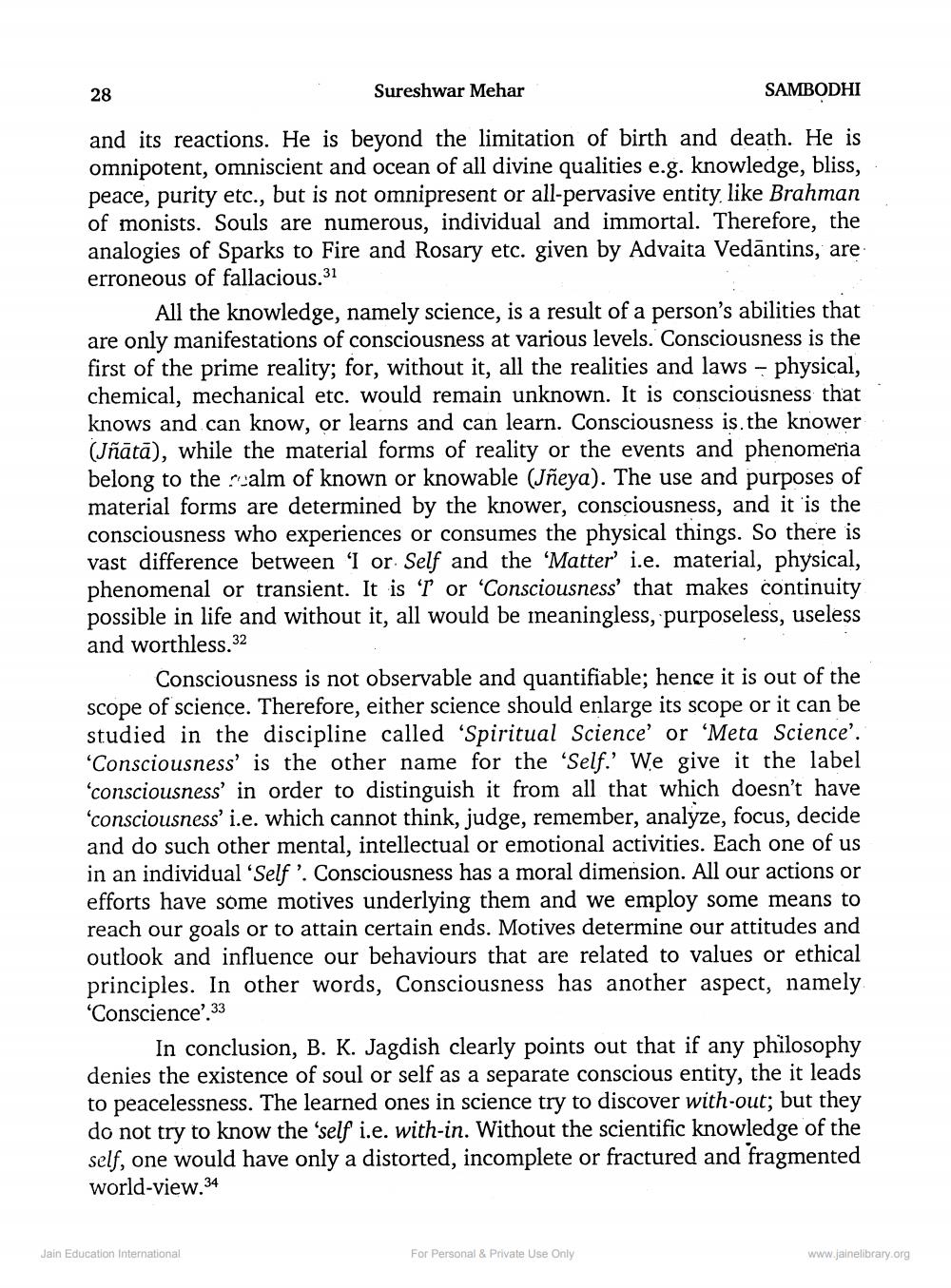________________
Sureshwar Mehar
SAMBODHI
and its reactions. He is beyond the limitation of birth and death. He is omnipotent, omniscient and ocean of all divine qualities e.g. knowledge, bliss, peace, purity etc., but is not omnipresent or all-pervasive entity, like Brahman of monists. Souls are numerous, individual and immortal. Therefore, the analogies of Sparks to Fire and Rosary etc. given by Advaita Vedāntins, are erroneous of fallacious. 31
All the knowledge, namely science, is a result of a person's abilities that are only manifestations of consciousness at various levels. Consciousness is the first of the prime reality; for, without it, all the realities and laws - physical, chemical, mechanical etc. would remain unknown. It is consciousness that knows and can know, or learns and can learn. Consciousness is the knower (Jñātā), while the material forms of reality or the events and phenomena belong to the realm of known or knowable (Jñeya). The use and purposes of material forms are determined by the knower, consciousness, and it is the consciousness who experiences or consumes the physical things. So there is vast difference between 'I or Self and the ‘Matter' i.e. material, physical, phenomenal or transient. It is 'T or 'Consciousness' that makes continuity possible in life and without it, all would be meaningless, purposeless, useless and worthless. 32
Consciousness is not observable and quantifiable; hence it is out of the scope of science. Therefore, either science should enlarge its scope or it can be studied in the discipline called 'Spiritual Science' or 'Meta Science'. 'Consciousness' is the other name for the 'Self.' We give it the label 'consciousness' in order to distinguish it from all that which doesn't have ‘consciousness' i.e. which cannot think, judge, remember, analyze, focus, decide and do such other mental, intellectual or emotional activities. Each one of us in an individual 'Self'. Consciousness has a moral dimension. All our actions or efforts have some motives underlying them and we employ some means to reach our goals or to attain certain ends. Motives determine our attitudes and outlook and influence our behaviours that are related to values or ethical principles. In other words, Consciousness has another aspect, namely ‘Conscience. 33
In conclusion, B. K. Jagdish clearly points out that if any philosophy denies the existence of soul or self as a separate conscious entity, the it leads to peacelessness. The learned ones in science try to discover with-out; but they do not try to know the 'self i.e. with-in. Without the scientific knowledge of the self, one would have only a distorted, incomplete or fractured and fragmented world-view.34
Jain Education International
For Personal & Private Use Only
www.jainelibrary.org




